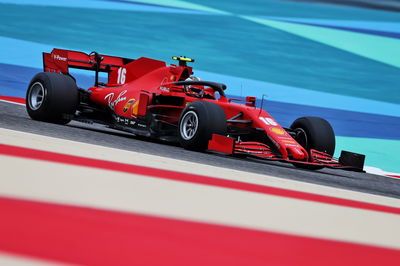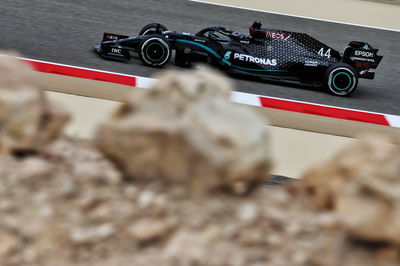Ferrari would now be willing to support F1 engine freeze from 2022

Ferrari is now in favour of a potential freeze on Formula 1 engine development from 2022 having previously been opposed to the idea.
Red Bull is pushing for the plan to freeze development in the wake of Honda’s decision to pull out of F1 at the end of next year, leaving Red Bull and its sister squad AlphaTauri without a power unit for 2022 onwards.
A deal to take over Honda’s engine project and facilities remains Red Bull’s preferred solution to its power unit quandary, though that would require a freeze due to lacking funds for future development.
Mercedes has already backed Red Bull’s lobby for an engine freeze but Ferrari had initially been “firmly against” the idea. Ferrari has since had a change in stance, with team principal Mattia Binotto revealing it has agreed to bring forward the introduction of new engine regulations by a year to 2025.
"I think what we said is there are already regulations in place where somehow Red Bull has got a solution, they may be supplied by other manufacturers, that's no doubt,” Binotto said ahead of this weekend’s Bahrain Grand Prix.
"We understand as well their intention to keep using their Honda engine for the future. We had meetings in the last days with F1 and the FIA. I think as Ferrari, we understand the situation.
"We are supportive in trying to anticipate by one season, one year, the freezing of the engines, because that would mean as well trying to anticipate to 2025 the new regulations for the power units.
"Knowing the situation and understanding the situation, it's not the first time that Ferrari is acting in a responsible way in that respect. So we will support freezing, by anticipating by one year the engines, the power unit.”
Binotto stressed that such a significant change to the current engine formula for 2025 would require clarity on the technical standpoint of the new power units by the middle of next year at the latest.
"To have a brand new format of power unit in 2025, we will need by the middle of next year clarity on the regulations," Binotto explained.
"I think it will be quite a different power unit to today, because I think there are, at least from the Ferrari point of view, important objectives that need to be set, as for example quite a different cost.
"It has to be more sustainable in terms of a cost point of view. I think the power unit should cost 50% what we are affording today. In order to achieve that, I think in order to decide what will be the technical format, it is somehow very difficult exercise.
"I think as well from the sustainability, so carbon footprint point of view, we have to set our objective which ahas to be very ambitious.
"We need to be very proactive but also collaborative between manufacturers, F1 and the FIA in order to progress very soon on the regulations. That will define the future of F1 from 2025 to 2030."












